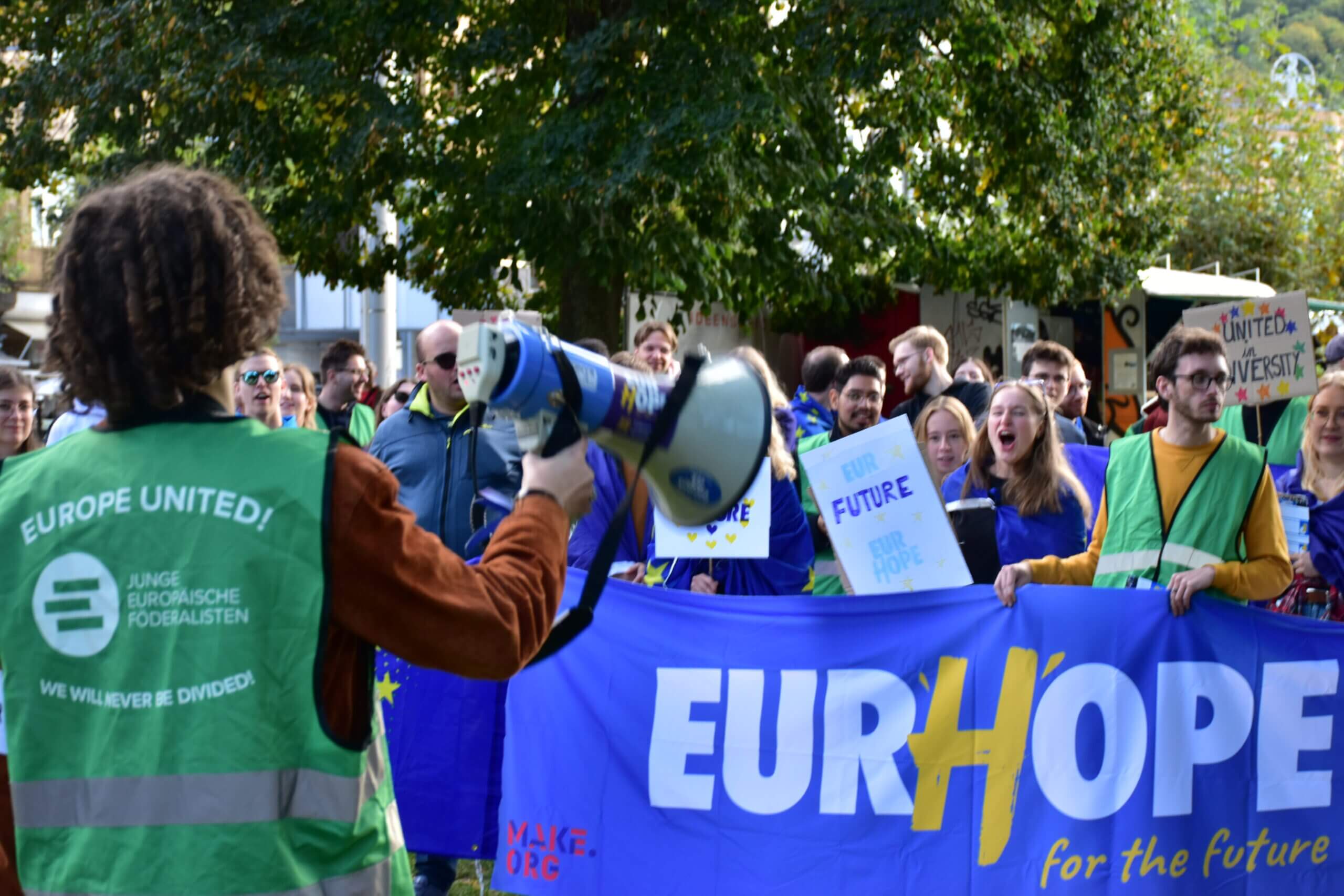Economy, social justice & employment
Promoting easier access to employment, especially for the youth
Proposals by young citizens
Find a selection of the proposals made by young Europeans
Access to employment, particularly for the youth, remains an issue.
Thus, we should provide the EU with tools to address problems on employment and harmonising standards and regulations in labour markets.
Moreover, to improve workforce skills, we should increase investment in lifelong learning and reskilling, creating an EU system for the validation and recognition of learning outcomes, and promoting vocational training as a strategic element of employment policy.
Find the extended version here.
Responsesby European political parties
All European political parties that are represented with ten or more members in the European Parliament (in February 2024) were invited to provide their responses.
Create a truly interconnected labour market by revising the mutual recognition of professional qualifications and academic and vocational degrees to ensure that formal and informal learning is recognised and facilitate remote working across Europe. Grant EU-sponsored summer Interrail passes to all young Europeans completing a vocational degree to reward beneficial career choices to the European economy and to make Europe's riches known to the many, not the few. More about this party, their programme & national members
We want full youth and quality employment; including for NEETs. We will present a Roadmap for Quality Work and Well-paid Jobs. We envision binding quality standards and more funding for the Youth Guarantee. We fight for accessible, well-funded vocational education and training as well as quality paid traineeships. We push for a fair workers’ mobility. We promote lifelong learning, the right to training during paid working time, and equipping workers with new skills to avoid brain drain. More about this party, their programme & national members
We defend access to quality and stable employment. We also defend the need to reduce the working day. Therefore, it is necessary to provide security to youth through more stable jobs with better remuneration. Precariousness prevents the articulation of life projects. More about this party, their programme & national members
Work should take place on decent terms & in safe conditions. We will put an end to the practice of unpaid internships. Accessible quality public education, training & lifelong learning should be available to all & funded properly. We will invest in training & access for jobs in the new green industries. With the Erasmus Equality principle, learners who could not otherwise afford Erasmus will receive enough money to fully fund their time abroad, regardless of one’s background. More about this party, their programme & national members
We believe in enabling every young person to thrive, regardless of social, economic or geographical barriers. This means providing financial and logistical support for education and entrepreneurship. We advocate for international skill development and replacing unpaid internships with quality job opportunities. Exploring tax exemptions for under-25 employees is on our agenda. We also want to increase funding for Erasmus and Culture tenfold. More about this party, their programme & national members
EFA wants to see more investment in cross-border training and employment opportunities. For example, qualifications should be more easily recognised across Europe. But we also want to make sure that young people have the opportunities they need to stay and make a good living in their home regions. We want to revitalise Europe’s most disadvantaged areas by providing special support and infrastructure to rural areas, islands, mountainous regions, and so on. More about this party, their programme & national members
This European political party did not provide a response. More about this party, their programme & national members
This European political party did not provide a response. More about this party, their programme & national members
This European political party did not provide a response. More about this party, their programme & national members
The answers by political actors are automatically translated and may contain mistakes.You can find the original, English version here.
Other ideas that might interest you!
Strengthening the efficiency of European justice systems
Accelerating the energy transition and the reduction of carbon emissions
Strengthening a sovereign EU voice in diplomacy
About EurHope
EurHope has the goal to activate young Europeans ahead of the European elections. At the core stands the Agenda of Hope, which was established on the basis of a participatory engagement campaign in 2023.
EurHope is co-lead by JEF Europe & Make.org and supported by more than 50 organisations from all over Europe (including European institutions).
